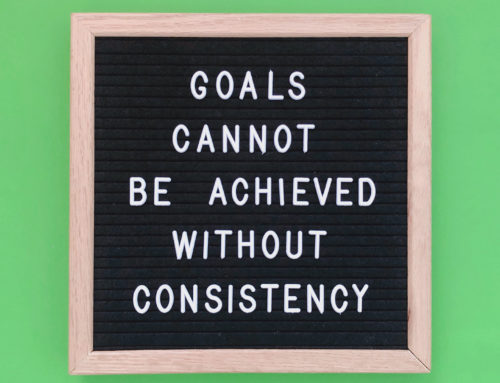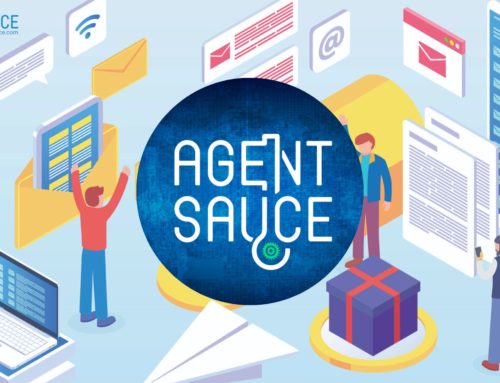Silver Bullet Marketing
Silver Bullet Marketing was a great topic for this episode. We talked about what it is, the difference between it and “Shiny New” marketing and the one thing that you can do to make your marketing more effective.
Take Aways
- The Silver Bullet marketing mentality – The concept that working with one technology will be all that you need to do to market your business.
- Shiny New Marketing – Constantly switching marketing tools and platforms for whatever is the newest/latest and greatest.
- The Silver Bullet – Silver Bullet Marketing is the same for everyone. Consistent effort over time with analysis of what is working will bring results.
Show Notes
- Silver Bullet Marketing Defined [0:35]
- Shiny/New [1:45]
- Technology is an enabler [2:45]
- Commoditizing Marketing technologies [5:00]
- Buying users [7:45]
- Amazing Presentation [8:45]
- Pricing/Integration [10:30]
- Be a Savvy Buyer [13:15]
- The Silver Bullet [16:00]
- Selecting a real estate marketing platform is like Dating [18:50]
Podcast Transcription:
Adam Small: Good afternoon. This is Adam Small with the Agent Sauce: Real Estate Marketing Podcast. With me today is Doug Karr from DK New Media.
Douglas Karr: Hey, how’s it going?
Adam Small: Good, Doug. How you doing?
Douglas Karr: Fantastic.
Adam Small: Good. Listen, I’ve been thinking about some things I get asked about a lot and some of the excitement that I see when realtors find out about our Agent Sauce product. I was thinking what I see a lot of, and I don’t know if you’re familiar with this term or not, but it’s what I like to call silver bullet marketing.
Douglas Karr: Oh yeah.
Adam Small: Basically, the concept of I found this one technology, this one thing, and if I do this one thing, I’m going to be a millionaire.
Douglas Karr: Yup, absolutely. Happens every day.
Adam Small: Exactly. You run your own marketing agency, so I’m sure you run into clients all the time that think, “Hey look, if I do this and this alone, it’s going to work for me.” So from my perspective-
Douglas Karr: Yup. Not only that, but you have the sales people telling you that, too. Everybody that’s got an app out there, it’s the best app in the world.
Adam Small: It’s going to solve your problems, and all you’re going to have to do is sit back and do nothing while it does all the work for you, right?
Douglas Karr: Right.
Adam Small: I kind of run into that quite a bit with real estate agents, some new, some experienced. I think some of them are struggling at times, because real estate’s not an easy industry. I kind of want to talk about that a little bit today and explore what is silver bullet marketing, if it exists, and what can you do to overcome that?
Douglas Karr: I love that, and there’s also the shiny syndrome, too. The new application. There’s the silver bullet marketing, you know the people, and then there’s that shiny, “Oh, this new app does everything.” Just because it’s new. We hit both of those with our clients and it’s tough. I think, for one thing, there is no such thing as silver bullet marketing.
Adam Small: Right, I would totally agree. Get that out there and end that conversation right off the bat, right?
Douglas Karr: Two, marketing and sales takes effort and time, period.
Adam Small: Right. It’s literally marketing … Effort over time is what it is.
Douglas Karr: I don’t care what platform you have. The role of technology is always to ease some of the automation and pain that you go through.
Adam Small: Right. The technology’s not going to do the work for you.
Douglas Karr: Exactly.
Adam Small: You have to make technology work for you. When I was Chief Information Officer for a company, I used to say technology’s supposed to be an enabler, not a disabler, right?
Douglas Karr: Exactly.
Adam Small: It’s the same thing for marketing technology. It has to enable you to do your marketing better. It’s not going to do it for you. It’s as simple as that.
Douglas Karr: Yeah, take any two real estate agents. Any two real estate agents probably sell a little bit different. Maybe they focus on-
Adam Small: Well, they have different clientele, different areas that they focus on. Even the cost of the home. Some of them will only do premium homes, multimillion-dollar homes. Others, I’ve known many that do $20,000, $30,000 homes in more depressed areas.
Douglas Karr: If they’re creating emails in Agent Sauce, one is going to have different pictures, different photos, different verbiage, different things about one might focus on luxury things and the other might focus on practical things.
Adam Small: Right, absolutely.
Douglas Karr: That’s the effort side, right?
Adam Small: Right.
Douglas Karr: You can make the engine, help automate the process and everything else, but-
Adam Small: You can make it easy to drag and drop the photos in there and arrange it, make it look nice and pretty, but in the end, you still have to put the effort into doing that.
Douglas Karr: Right. I think a lot of people get this symptom that once they start working with a platform, over time, the nuances of that platform, the little quirks start to bother them or whatever. Then, when someone else brings a new platform along, they go, “Oh my gosh, I got to get this. I got to get this. It’s so much better than what I’m using now.” Then they sign. They get the new platform.
Adam Small: And they learn the nuances and quirks of that one, right?
Douglas Karr: Yeah, exactly.
Adam Small: It’s along those lines, right?
Douglas Karr: The thing is what you guys try to do is you listen to all of your clients, and based on their feedback, you continue to-
Adam Small: It’s a continuous improvement model, absolutely.
Douglas Karr: You are trying to cover the most people and provide the most features for the most people, but that doesn’t mean you have some unique person out there that’s just looking for one wacky feature or whatever.
Adam Small: Right, exactly.
Douglas Karr: Maybe you can’t serve them. Maybe they’ve got to go with something else.
Adam Small: Right. It’s a funny thing. Over the years, we’ve seen a lot of technologies come and go. Some stick around. They just kind of lose the shiny, like you’re talking about, or they lose the silver bullet marketing piece and they become mainstream or a commodity, if you will. I’m thinking, in particular, one that started out as shiny and new and all that was virtual tours for homes 20 years ago, whatever. They started coming out and making it real big. Everybody was like, “Oh wow, shiny and new. That’s going to be my silver bullet,” and all that. The thing is they managed to stick around. They’re still great marketing tools. Some of them are absolutely gorgeous, others not so much, but they’re a great marketing tool because they allow somebody to look at the pictures of a home.
Douglas Karr: Yeah, see the inside of a house when they’re there, yeah.
Adam Small: Exactly, and really get a feel for whether or not they want to see it. At the same time, another technology that came around was a few years back, the Microsoft Tags. Do you remember those?
Douglas Karr: Yeah.
Adam Small: They’re kind of like the QR codes. Let’s be honest, Microsoft had a really great platform behind it, because you could identify a lot of information with that tag for lead generation and all that, but they never really caught on. I remember I was at an event talking to a fellow, and he was telling us that our entire platform was just going to get shut under and shut out by the Microsoft Tag. He said that with Microsoft behind it, they’re deep pockets and all that.
Douglas Karr: Like bing.
Adam Small: Yeah, exactly. There’s no way it could fail, and we might as well just hang up shop now. They’ve been gone for a while now. That was kind of the silver bullet marketing mentality on his part, and in part, the shiny mentality, too.
Douglas Karr: I think people underestimate sometimes, when a new product comes out, especially if it’s a startup that gets a lot of investment money, there’s a lot of marketing and sales pressure put behind those people to sign up as many people as they possibly can as quick as possible and then try to iron out the problems later. That’s the other problem with shiny objects, is you take a … I know this isn’t a promotion for Agent Sauce, but you take a real estate marketing platform like yours that has organically grown over time. What we mean by organic is you didn’t go out there and buy people to pay $1,000 a user on pay per click to try to get someone to …
Adam Small: Sign up, right.
Douglas Karr: … sign up and everything else. You grew by word of mouth and by people utilizing it.
Adam Small: Referral.
Douglas Karr: And referrals and then real estate agencies that have multiple users, users coming in and out. When people leave, they wind up getting it at the next real estate company that they work for. That organic growth, over time, is just a huge benefit from a usability standpoint, feedback standpoint, and everything with your users. Now, switch that to some startup that gets a million dollars in funding, and people don’t realize this, but they’ve got to take 50% of that and go buy users, basically.
Adam Small: Right, to show growth.
Douglas Karr: Go out there and sell the crap out of them. They have shiny presentations, and they have use cases, and they have all of this stuff. It’s a little bit overwhelming if you’re the person on the other end buying software or whatever. You tend to get a little dazzled. You say, “Oh, wow, man. Look at how great their marketing is. Look at how great their product looks,” and everything else. You go get the product and it winds up that the company is spending so much on marketing, they’re not spending anything on customer support. They’re not spending anything on new features. They’re not spending anything on it and now you’re-
Adam Small: Bug correction, error correction, or even initial setup and integration, right?
Douglas Karr: Yeah. Now you’re just stuck with a dog.
Adam Small: Right. It’s funny you say that. I sat in a presentation one time for a marketing automation software, and man, it was an amazing presentation. I wanted to take his presentation at the end of it and steal it, but of course I didn’t. It was amazing. At the end, he says, “We’re going to give everybody a deal today. If you sign up, the setup fee’s only going to be $2,500 to sign up, and it’s only going to be $400 a month.” These are not exaggerations. That’s the actual numbers he put out there to utilize this software. There were about 400-
Douglas Karr: High pressure.
Adam Small: I don’t even know that it was high pressure. There were about 400 people in the room, and it was just such a great presentation. I mean, he did an amazing job. All these people hopped up, and there must have been 80 or 90 people got up and went and stood in line to shell out $2,500 and $400 a month for a minimum of a year. Then, the worst part of it, in my opinion, the company did great. We had a friend that signed up as well, and at the end of the day, that person was paying a lot to do some customization and some integration, so shelling out even more money on top of what they’d already spent. I don’t know, in the end, that it was worth it to that person, because it didn’t help their business as much as they thought it would.
Douglas Karr: I think that brings another topic that has to do with silver bullet marketing and everything else is pricing. I think a lot of people overestimate and underestimate pricing and what it means to the quality of a platform. We work across the spectrum with startups that have almost no resources all the way to these huge companies that have tens of millions of dollars. It’s surprising. Marketing automation, like what you were talking about. We have some companies that are on $130-a-month product, and it’s incredible.
Adam Small: Amazing, right?
Douglas Karr: Then we have companies that are on a $10,000-a-month product, and they’re buying services to make it work.
Adam Small: To fit it to their model?
Douglas Karr: Yeah.
Adam Small: Instead of picking something that fit their model or could be customized to fit their model, they’re trying to adapt their business to work with the software.
Douglas Karr: Right.
Adam Small: That’s terribly painful.
Douglas Karr: There’s a real pricing disparity that maybe fakes people out with these silver bullets.
Adam Small: Because it’s a perceived value.
Douglas Karr: Where do you guys start with Agent Sauce?
Adam Small: We start in the $30 range.
Douglas Karr: $30 range. Someone might come and say, “Well, $30 range. Man, that can’t possibly be good as this one that’s $2,000 a month,” and they’re wrong.
Adam Small: Yes, they are. They’re absolutely wrong.
Douglas Karr: The reason why that one is $2,000 a month is they’ve got a huge sales force. They’ve got all this overhead, all this marketing, all this everything, whereas you’re taking and reinvesting your subscriptions right back into development of new features and stuff.
Adam Small: Well, development, cost management, streamlining, and all those things that any business owner should do as opposed to, getting back to the the startups, they get that money in their pockets and it’s like it’s burning a hole in it. They got to find a way to spend it to justify why they got it and what they’re doing. A lot of times, they leave fiscal responsibility behind when they do that.
Douglas Karr: If they’ve got investors, they’ve got to pay those investors back some day, so they’ve got to have massive growth for that. I’m definitely not badmouthing that business model. All I’m saying is that what we see in the industry, and it’s not just real estate marketing, it’s all marketing, is we just see these huge disparity in cost. You see it even with agencies. One agency might charge $25,000 … We’ve seen people charge over $100,000 for an average website that our agency might be able to build for $10,000 or $15,000 in effort. We still profit off of that fairly well. It’s just a matter of, I think, you’ve got to be a savvy consumer or a savvy business person. If you’re a real estate agent, focus on features. Focus on what can I do with this? What kind of training do I get with it? How big can I have it? How many contacts can I have in your system? How many emails can I send? If you’re not paying attention to those tangibles, someone that could be paying let’s say they’re up to $50 a month in your system, they go to some other system and start at 30 or 40, and all of a sudden they’re getting bills for 150 and 200 and 300 as they keep growing.
Adam Small: One of the things I would say to that is the features are absolutely important, but at the same time, figuring out how you’re going to benefit from those feature is probably the most important piece of that.
Douglas Karr: Well, that’s what I mean.
Adam Small: Like you were saying, I can get up to 2,500 contacts. That’s great. Now, what can I do with that? Can I send out enough emails in order to have an impact on my business? Am I able to track who’s opening and all that? Yet again, the benefit of it is knowing who’s interacting and engaged so that I can follow up. It’s features, but it’s benefits too.
Douglas Karr: Well, that’s what I meant. I definitely meant pay attention to how are you going to use this system. Write it down. Say, “My goal for this year is that within three months, I’m going to have a great email program that I’m going to continue to grow every month. Okay, how does this system help me achieve that?” We always tell people plot it down and then figure out how many resources you need. That’s the other one.
Adam Small: To achieve that.
Douglas Karr: Yeah. If you get one of these silver bullet marketing systems and, who knows, maybe you’ve got a phone tree or something like that. They go, “Oh yeah, we support that,” and you find out, after you sign, that all of a sudden you’ve got to get development money to add that feature or whatever, those are the types of things that you just don’t realize. You’ve got to make sure that, in the buying process, you’re plotting out how am I going to use this system? How am I going to deploy it? What resources do I need for it? Ask all of those questions, because the silver bullet marketing system, chances are, you’re going to find out that there might be a couple things lacking or it’s pay per integration. Oh, we can do that.
Adam Small: Sure, we can do that.
Douglas Karr: We can do that is different than that’s right out of the box, that’s included.
Adam Small: Yeah, that’s different than that’s included, exactly. It’s funny to me, because as we’re sitting here talking and say that there’s really no silver bullet marketing, the one thing that rises to mind that actually is a silver bullet is working hard at it, right?
Douglas Karr: Exactly. That’s with your system. You can grow with the system. You can start with email, then start to do virtual tours, then start to do pamphlets and print.
Adam Small: Lead generation.
Douglas Karr: Lead generation.
Adam Small: It’s CRM, customer relationship management, then it’s lead generation, and then it’s full-blown marketing automation.
Douglas Karr: The nice thing is without spending more and more and more and more, you can enable certain features over time and get better and better at your marketing.
Adam Small: In the end, you’re going to get out of it what you put into it. If you’re out there working the system and working yourself, then it’s going to work for you tremendously, but the same thing goes for anything. From a silver bullet marketing perspective, there really is only one silver bullet …
Douglas Karr: That’s you.
Adam Small: … to anything, and it is you. It’s your hard work and effort that you put into it. I think that that’s probably the most important takeaway is to realize that technology’s there to make it easier for you, but it’s not going to do it for you, so you have to do.
Douglas Karr: It’s your toolbox, right?
Adam Small: Exactly.
Douglas Karr: I can buy the best, most expensive snap-on toolkit in the world. It doesn’t mean that I can change my oil.
Adam Small: Well, I was going to go with that wrench doesn’t make a great hammer. It may get it there, but it’s not going to be the best way to do it, because that nail’s going to be bent up and that wood’s going to be chewed up and it’s not going to be real pretty when you’re done. In the end, having the right tool for the right job, and that’s really what it comes down to. Making sure you avoid, recognize when you’re looking at things from a silver bullet marketing perspective, because it’s easy. Like I said, that guy did a heck of a presentation and a lot of people signed up.
Douglas Karr: We see it every day. We see our clients go, “Oh my god … ” We had a prospect once that came to us, and they said, “Oh my gosh, I found someone in Colorado that has an agency that takes care of our industry. That’s all they do. This is the best thing ever.” We’re like, “Well, we’re right around the corner. We could actually meet with you and help you and everything else.” “Oh, no, no, no. These guys have all the connections, everything.” Okay. We thought that we could help that client. They went with the silver bullet, spent a lot of money, and then three months later, they had to fire them. It wasn’t what they thought. This is terrible. I’m going to go with a terrible analogy.
Adam Small: Okay, do the terrible analogy.
Douglas Karr: It’s dating, right?
Adam Small: You know what? It is dating.
Douglas Karr: Those first dates are wonderful, but then the guy starts picking his teeth on that third date, and you’re wondering what’s going on. Then, he starts belching on the fourth date and scratching his butt. Eventually, you start going, “What is going on?” and you dump him. I don’t think it’s a terrible analogy, it’s just an off-color one. That’s what it is with platforms.
Adam Small: It absolutely is, and what we see a lot with that is you might even call it a silver bullet syndrome or speed dating, where somebody will hop onboard. If it’s not making them millions right then and there and they’re not putting a ton of effort doing what they need to do or whatever, then they move on to the next thing instead of giving it a full chance, number one.
Douglas Karr: Exactly.
Adam Small: Number two, having really identified that it was a good person to be dating to begin with.
Douglas Karr: That’s what I mean, yeah. You’ve got to spend time with someone and eventually see whether they’re a match or not. It’s the same thing here.
Adam Small: Right. That goes back to what you were saying with make sure you understand all the benefits and features and what all you’re truly getting when you’re signing up for something.
Douglas Karr: I think we beat silver bullet marketing to death.
Adam Small: I’m sure it’ll rear its ugly head again. I think we have for now. Well, thanks for joining us today, Doug, I really appreciate it.
Douglas Karr: You bet.
Adam Small: Thanks for listening to the Real Estate Marketing Podcast by Agent Sauce. If you want to learn more about us, go to agentsauce.com. See us on Facebook at Facebook.com/agentsauce. Thanks.







